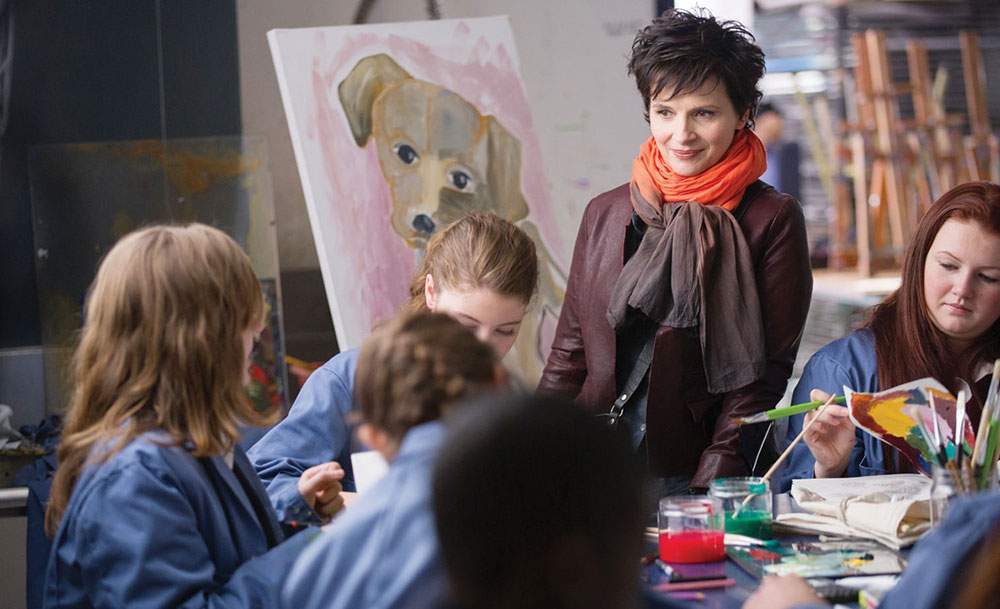Words and Pictures
It's difficult to think of a supposed romantic comedy with two less sympathetic protagonists.
Overview
In Fred Schepisi's new rom-com, the unimaginatively titled Words and Pictures, two antagonistic high school teachers argue the merits of images versus prose. It's a flimsy and vaguely pretentious premise for a movie, but one that, at the very least, feels well-suited to the medium. After all, what is cinema if not the marriage of sight and sound? The unfortunate irony of Schepisi's film is that it fails to make a very good case for either.
Clive Owen plays Jack Marcus, an English teacher at the expensive Croydon Academy. A burnt-out poet with a puffed-up ego and a drinking problem, Marcus openly bemoans the ability of his students, despite it having been years since he wrote anything of significance himself. A few of Marcus's colleagues find his attempts at roughish charm amusing. The rest treat him with barely concealed contempt.
One faculty member well and truly in the latter category is Juliette Binoche's art instructor, the icy Dina Delsanto. Like Marcus, she was once an in-demand artist, although rather than a pen, her tools were paint and canvas. But rheumatoid arthritis has stripped her of her dexterity and forced her to take up teaching. The pair could hardly be more different. So naturally, they're destined to fall in love.
The catalyst for their romantic conflagration is a remark made by a student, that pictures are more powerful than words. Delsanto, being an art teacher, agrees, prompting Marcus to strike back in his own class. Soon the debate embroils the entire school — because after all, nothing gets young minds firing than the surly sexual tension between their professors.
It's difficult to think of a supposed romantic comedy with two less sympathetic protagonists. That being said, Marcus is so actively unlikable that the humourless Delsanto seems positively charming by comparison. Rejoinders that are meant to be witty instead play as painfully smug, while his smarmy attempts at wooing cross well into the realm of harassment. As a teacher he's even more unbearable, dropping truth bombs on his students by explaining that haikus are, like, the original tweets. Say whaaaaaat?
Schepisi's direction is uncharacteristically flat, the director putting up as poor a case for pictures as screenwriter Gerald Di Pego does for words. At least the contest is even that way, although frankly both mediums deserve better. For that matter, so do we.





